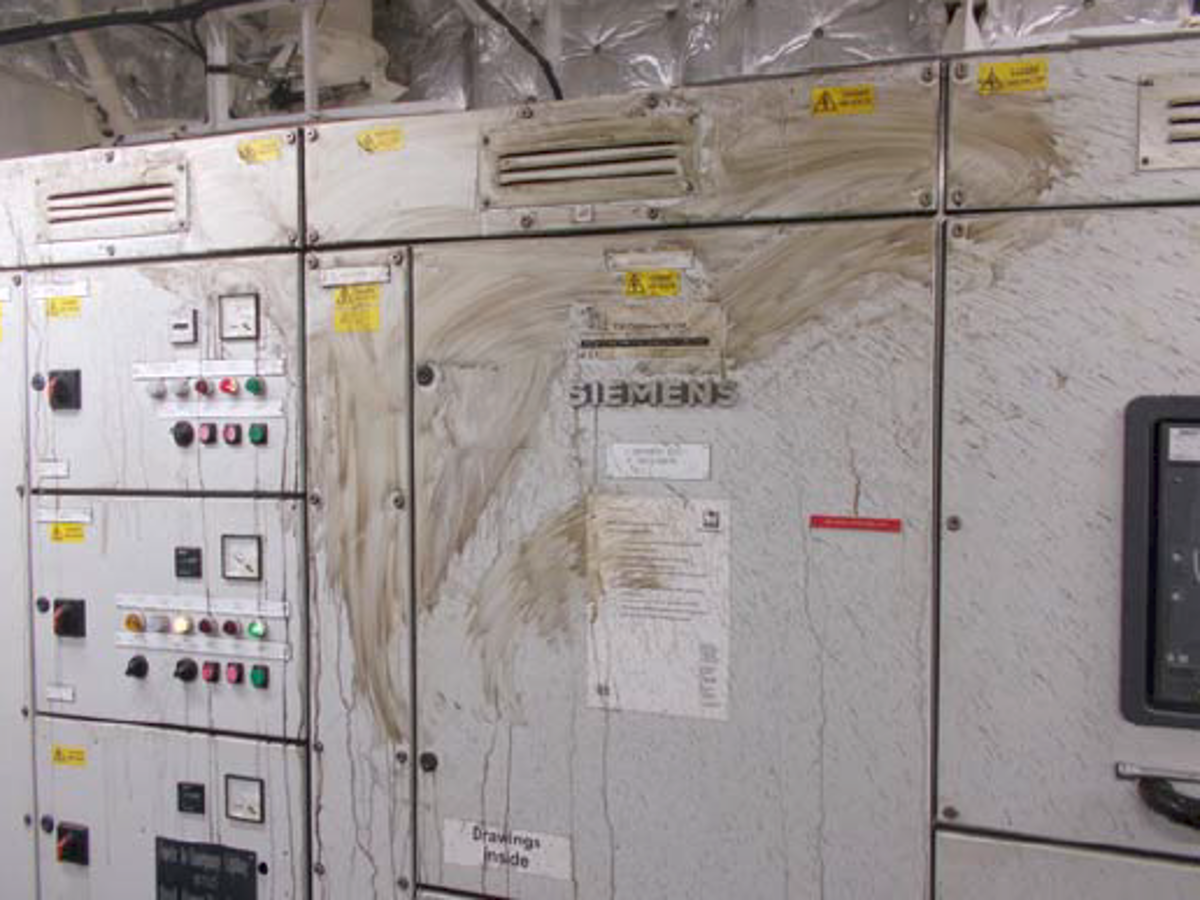Unexpected Release of Water During Annual Maintenance of CO2 Fixed Firefighting System
- Safety Flash
- Published on 19 March 2018
- Generated on 25 February 2026
- IMCA SF 06/18
- 2 minute read
Jump to:
An incident took place during annual maintenance of CO2 fixed firefighting equipment on a vessel, in the emergency generator switchboard room.
What happened ?
There was an unplanned and unexpected release of water.
As part of the annual maintenance of the CO2 fixed firefighting system, air was blown at 7 bar through the lines. As part of this check, a person was located in the CO2 room on the starboard side of the main deck, an engineer was in the emergency generator room located below the switchboard and the vessel electrician was in the switchboard room to witness the tripping of the emergency generator room supply fan.

What went wrong?
When the task started, a fine mist was noticed coming from one of the nozzle heads in the emergency generator switchboard room. Further to this, water was seen spraying out of the nozzles onto the 440V and 220V switchboards, transformers and surrounding areas. An all stop was immediately called over the radio.
What were the causes?
The source of the water has not been identified, however it is suspected to have been as a result of condensation forming in the pipework supplying the nozzles. These pipes are of considerable length.
IMCA notes that compressed air systems should be blown through before connection, to ensure that there is no water in the air system which may be transferred into the system being blown through.
What actions were taken?
Following the incident, the vessel team placed bags with a small air vent onto the nozzle heads to collect any unexpected release of water during checks.
- Nozzle heads to be covered appropriately during these tests.
- the planned maintenance system was updated to include instructions to cover nozzles within electrical switchboard spaces and any other sensitive areas during these tests.
- other vessels and third-party contractors were advised to take similar precautions.
Related Safety Flashes
-
IMCA SF 03/18
31 January 2018
-
IMCA Safety Flashes summarise key safety matters and incidents, allowing lessons to be more easily learnt for the benefit of the entire offshore industry.
The effectiveness of the IMCA Safety Flash system depends on the industry sharing information and so avoiding repeat incidents. Incidents are classified according to IOGP's Life Saving Rules.
All information is anonymised or sanitised, as appropriate, and warnings for graphic content included where possible.
IMCA makes every effort to ensure both the accuracy and reliability of the information shared, but is not be liable for any guidance and/or recommendation and/or statement herein contained.
The information contained in this document does not fulfil or replace any individual's or Member's legal, regulatory or other duties or obligations in respect of their operations. Individuals and Members remain solely responsible for the safe, lawful and proper conduct of their operations.
Share your safety incidents with IMCA online. Sign-up to receive Safety Flashes straight to your email.

